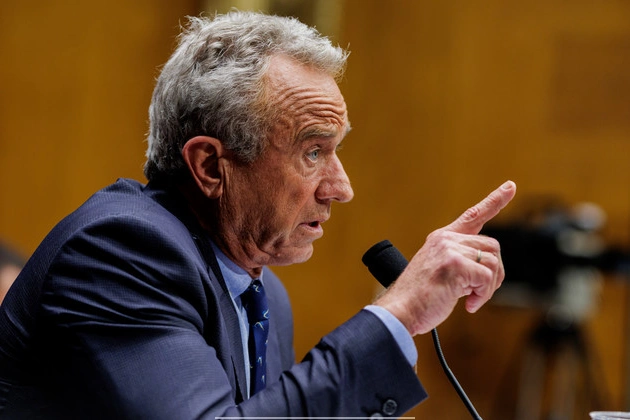
RFK Jr.’s Call for Enhanced Global Health Collaboration
Health Secretary Robert F. Kennedy Jr. advocates for a new approach to global health cooperation that extends beyond the confines of the World Health Organization (WHO). In a bold statement, Kennedy emphasizes the need to liberate international health initiatives from political interference and external influences, including pharmaceutical companies and adversarial nations.
President Donald Trump’s decision to withdraw the U.S. from the WHO has catalyzed discussions among like-minded countries seeking alternative avenues for effective collaboration. Kennedy asserts that while global health cooperation remains paramount, the current framework under the WHO has exhibited shortcomings, particularly highlighted during the Covid era.
Kennedy’s critique extends to the WHO’s alleged compliance with China’s directives to suppress critical information regarding the origins and transmission of the Covid-19 virus. He contends that the organization’s handling of the pandemic narrative has been compromised by political agendas, leading to a loss of trust and credibility.
The divergence in perspectives between the U.S. and the WHO underscores a growing trend towards reevaluating existing health protocols and forging new alliances. Kennedy’s vision of establishing a parallel global health cooperation network signals a transformative shift in the landscape of international health governance.
Implications of U.S. Withdrawal and Emerging Trends
The impending U.S. withdrawal from the WHO serves as a catalyst for other nations to reassess their participation in the organization. Argentina’s decision to withdraw and expressions of interest from countries like Italy and Israel reflect a broader sentiment of disillusionment with the current global health architecture.
Kennedy’s call to action urges health ministers and the WHO to heed the wake-up call presented by the U.S. departure and initiate reforms that address systemic deficiencies. The rejection of the newly adopted pandemic agreement further underscores the need for a comprehensive overhaul of existing protocols to enhance preparedness and response mechanisms.
As the U.S. embarks on a path of health reform focused on combating chronic diseases, promoting healthy lifestyles, and investigating the root causes of prevalent ailments, Kennedy advocates for a paradigm shift towards holistic healthcare practices. By prioritizing immune system resilience and addressing lifestyle factors, the U.S. aims to foster a healthier population devoid of vested interests and profit-driven agendas.
RFK Jr.’s proactive stance towards redefining global health norms signifies a pivotal moment in the evolution of international health cooperation. His advocacy for transparency, accountability, and innovation sets the stage for a collaborative reimagining of health systems worldwide.











